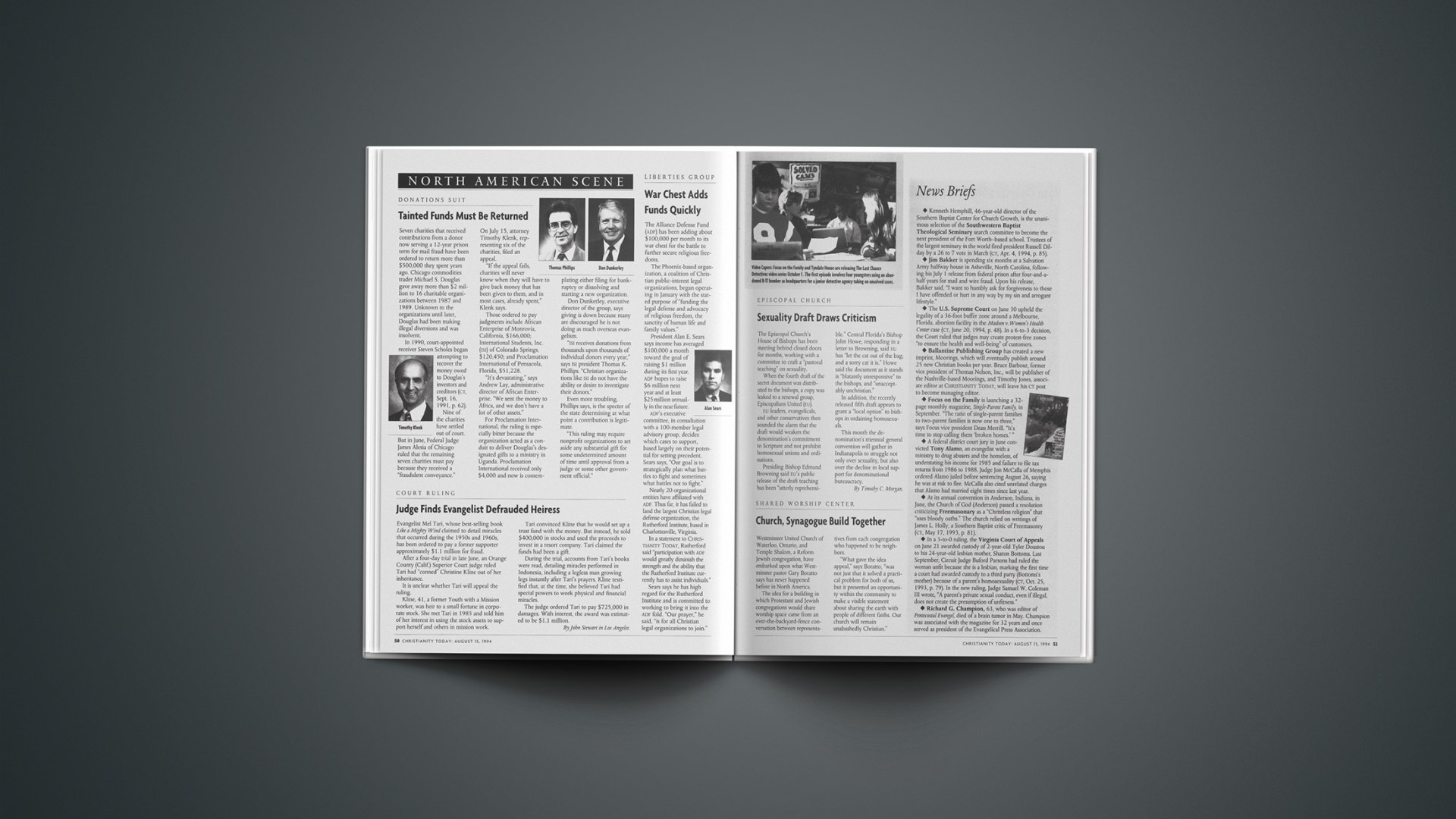Seven charities that received contributions from a donor now serving a 12-year prison term for mail fraud have been ordered to return more than $500,000 they spent years ago. Chicago commodities trader Michael S. Douglas gave away more than $2 million to 16 charitable organizations between 1987 and 1989. Unknown to the organizations until later, Douglas had been making illegal diversions and was insolvent.
In 1990, court-appointed receiver Steven Scholes began attempting to recover the money owed to Douglas’s investors and creditors (CT, Sept. 16, 1991, p. 62).
Nine of the charities have settled out of court. But in June, Federal Judge James Alesia of Chicago ruled that the remaining seven charities must pay because they received a “fraudulent conveyance.”
On July 15, attorney Timothy Klenk, representing six of the charities, filed an appeal.
“If the appeal fails, charities will never know when they will have to give back money that has been given to them, and in most cases, already spent,” Klenk says.
Those ordered to pay judgments include African Enterprise of Monrovia, California, $166,000; International Students, Inc. (ISI) of Colorado Springs, $120,450; and Proclamation International of Pensacola, Florida, $51,228.
“It’s devastating,” says Andrew Lay, administrative director of African Enterprise. “We sent the money to Africa, and we don’t have a lot of other assets.”
For Proclamation International, the ruling is especially bitter because the organization acted as a conduit to deliver Douglas’s designated gifts to a ministry in Uganda. Proclamation International received only $4,000 and now is contemplating either filing for bankruptcy or dissolving and starting a new organization.
Don Dunkerley, executive director of the group, says giving is down because many are discouraged he is not doing as much overseas evangelism.
“ISI receives donations from thousands upon thousands of individual donors every year,” says ISI president Thomas K. Phillips. “Christian organizations like ISI do not have the ability or desire to investigate their donors.”
Even more troubling, Phillips says, is the specter of the state determining at what point a contribution is legitimate.
“This ruling may require nonprofit organizations to set aside any substantial gift for some undetermined amount of time until approval from a judge or some other government official.”
Copyright © 1994 Christianity Today. Click for reprint information.










